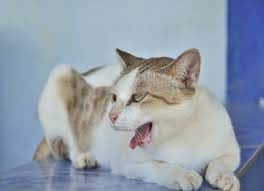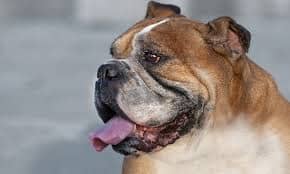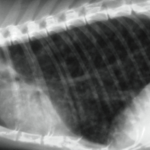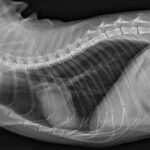Difficulty breathing is also called dyspnea and is a medical emergency.


Respiratory distress is recognized by increased effort to breathe; noisy or squeaky breathing; cyanosis (a bluish tinge to the lips and mucous membranes); and an inability to inhale or exhale. In cats, breathing with the mouth open (panting like a dog) is a sign of severe distress and should be evaluated by a veterinarian right away.
It is imperative to get the pet examined to determine the cause. Diagnostic tests (such as x-rays, blood tests and ultrasound) will be needed, but the pet must be stabilized (often with oxygen or by removing fluid from the chest) before they can withstand the rigors of testing if respiratory distress is severe.
What to Do
Brachycephalic (short-nosed) breeds (e.g., bulldogs, Pekingese, Pug, etc.) warrant a special mention. Because of the short nose, the soft palate can interfere with breathing. On hot days or in hot environmental conditions these dogs try to cool off by panting vigorously, and the soft palate interferes even more. This cycle continues until the dog is severely dyspneic and overheated. Cooling these dogs is imperative. Move them to a cool environment and seek immediate veterinary care. This syndrome is manageable only by protecting these breeds from heat or by surgically reconstructing the soft palate.
- Keep the pet and yourself calm.
- If the pet has choked on a foreign body, perform the Heimlich maneuver and/or a finger sweep of the oral cavity if you can safely do so
- Perform rescue breathing if your pet is not breathing or conscious – your mouth to animal’s nose with their mouth held closed
- If the pet is overheated, moisten the feet and ears with cool (not cold) water to promote heat exchange.
- Seek veterinary assistance as soon as possible.
What NOT to Do
- Do not upset the pet.
- Do not perform rescue breathing on a conscious pet.
- Do not give anything by mouth.
Dyspnea, or difficulty breathing, is a serious sign. Causes include:
- Congestive heart failure
- Asthma
- Cancer
- Fluid buildup in or around the lungs
- Bronchitis
- Heartworm Disease
- Pneumonia
- Laryngeal paralysis (a condition usually seen in older pet dogs in which they lose ability to open and close their airway)
- Obstruction of the trachea
- …and many other conditions.


